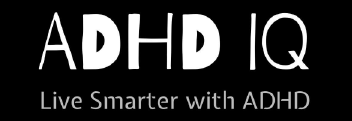Every kid has moments of bouncing off the walls or daydreaming mid-sentence, right? But if those behaviors start affecting school, friendships, or daily routines, it might be time to dig a little deeper. As parents, it’s tough to know what’s “just a phase” and what’s not. That’s where we come in. At ADHD IQ, we’re here to help you figure out if what you’re seeing is more than typical kid behavior.
If you’re asking yourself whether your child needs to see an ADHD specialist, you’re already on the right track.
Why You Shouldn’t Brush Off the Signs?
Let’s be honest—parenting is overwhelming. And sometimes, it’s easier to chalk up constant fidgeting or forgetfulness to “just being a kid.” But here’s the thing: early signs of ADHD aren’t just quirks. If ignored, these behaviors can take a real toll on your child’s self-esteem, learning abilities, and emotional well-being. We understand—you’re doing everything you can. That’s why we’re here to guide and support you throughout the journey. After all, when you take action matters just as much as how you do it.
What’s “Normal” and What’s Not?
Red Flags You Shouldn’t Ignore
Some kids are naturally high-energy or super imaginative. But if you’re seeing patterns that seem off, it’s time to pause and look closer. Some common signs include:
- Struggling to stay focused—even on activities they enjoy.
- Frequently cutting others off in conversation or answering before a question is fully asked.
- Tending to forget daily routines like brushing teeth or getting their school things together.
- Hyperactivity that doesn’t settle—even during quiet time.
- Emotional outbursts that come out of nowhere.
Sound familiar? These signs don’t mean there’s anything “wrong” with your child. They may simply indicate that your child could benefit from a little extra support—and that’s exactly what we’re here to provide at ADHD IQ.
Not All ADHD Looks the Same
There’s a lot of misinformation out there. Some people still think ADHD just means being hyperactive. Truth is, there are different types:
- Inattentive Type: More daydreamy and forgetful.
- Hyperactive-Impulsive Type: Constant motion, blurting things out.
- Combined Type: A mix of both.
Each child shows it differently. Our team takes the time to really understand what your child is going through.
What Can Parents Do?
You’re not powerless—far from it. If you’re unsure what steps to take, here are some ideas to get started:
- Track the behavior. Jot down patterns or examples to share with a professional.
- Talk to teachers. They can offer insight into how your child acts in a structured setting.
- Don’t wait. The earlier you get answers, the better the outcome for your child.
- Book a consultation. It’s quick, it’s easy, and it can bring peace of mind.
Our team at ADHD IQ makes the process stress-free. We work with you and your child, not around you.
FAQs
Q1: At what age can ADHD be diagnosed?
A: Symptoms often appear before age 12, but we’ve seen signs as early as preschool. We’re happy to help guide you.
Q2: Is medication always necessary?
A: Not always. Treatment depends on the child. Sometimes therapy, structure, and support are enough. Other times, medication helps. We explore all options.
Q3: What if my child’s teacher hasn’t noticed anything?
A: That’s okay. Kids behave differently in different settings. Your gut as a parent is still valid.
Q4: Is ADHD caused by bad parenting?
A: Absolutely not. ADHD is a neurological condition. Blaming yourself helps no one.
Q5: How long does diagnosis take?
A: It varies. But we aim to make it as smooth and quick as possible, without skipping any critical steps.
If you’ve read this far, chances are you’re feeling unsure—or maybe even a little worried. That’s completely normal. But guess what? You’re not alone. Your child deserves the best support possible, and so do you. At ADHD IQ, we take pride in being the trusted ADHD specialist that families can count on for real answers and compassionate care. Reach out today. Let’s help your child thrive, not just survive.

